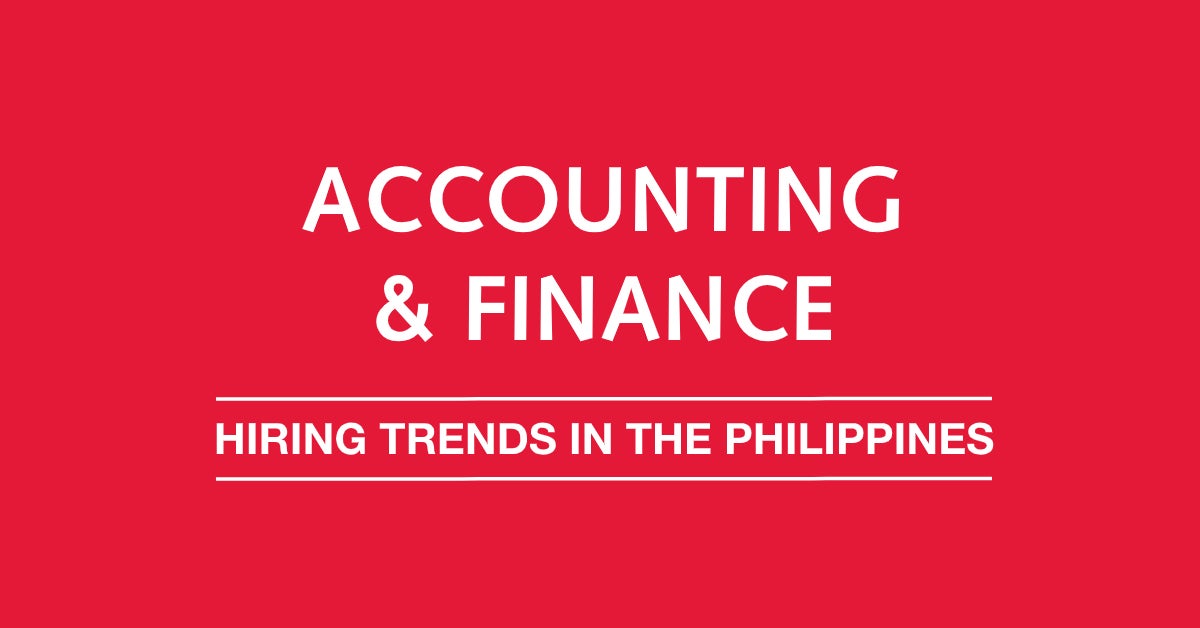The COVID-19 pandemic has undeniably affected countries, businesses and people. We’ve seen radical changes from organisations in terms of corporate responses and strategies to address the situation, while striving to support business continuity.
Although some companies have continued to do business as usual despite the pandemic, their recruitment and hiring processes have been nonetheless greatly disrupted due to business mandates and priorities. As we move to Q3, we expect many companies to resume their hiring processes, and more Accounting and Finance roles to open up.

How would you describe the recruitment market for your sector? Have there been any changes?
In normal situations, Q4 to Q1 would see the bulk of job openings for Accounting and Finance professionals, due to annual business planning and budgeting needs. Furthermore, it’s in Q1 that most companies finalise their previous year’s annual reports and prepare for audit and tax filings.
Given the COVID-19 situation started to spread in the Philippines by early Q1 2020, companies have already started taking precautionary measures early in the year, which have limited and slowed down their usual hiring and recruitment activities for at least the first half of 2020.
Upon the official declaration of the COVID-19 pandemic, cost-cutting measures have also been greatly observed in both local and multinational companies. Many organisations have stepped back from hiring, and conducted hiring freezes, temporary layoffs, and even retrenchments of employees. A huge drop in the number of hiring and onboarding of Accounting and Finance professionals has resultingly been seen in the early few months, especially for junior to mid-level roles.
Who is hiring and what jobs are they hiring for?
The COVID-19 pandemic was clearly not something that organisations have prepared for. A lot of companies had to implement drastic changes and adapt to the so-called 'new normal', which resulted in project cuts, fund losses, and unfortunately, the letting go of talent.
Despite the current situation, we still see hiring demand in industries, such as e-commerce, technology, shared services, logistics, consumer, and manufacturing (essential goods). Critical roles, such as Financial Controller, Finance Manager, Accounting Managers, Treasury Managers have been prioritised by businesses. Employers have also tagged Financial Planning and Analysis, Controllership, and Treasury among the skills and experience most highly relevant to companies in the current climate.
Moreover, we observe a trend of placing Accounting and Finance professionals on contract-based employment (eg. fixed term, consultancy / project assignment), due to uncertainties brought about by the COVID-19 pandemic.
Here's an overview of the developing landscape for the following roles.
Companies in the digital space remain thriving. To further capitalise on the ongoing boom in online transactions, they should utilise E-Commerce Managers, who could not only take charge of the usual finance responsibilities but also manage and convert digital activities and web traffic to profits for businesses.
Finance Business Partners and Business Controllers are roles companies continue to invest in, even in the face of the current global situation, as these are strategic profiles needed by organisations to move their businesses forward. We have seen high demand for these candidates, and we expect this trend to continue to gain further traction for the rest of the year, especially for businesses in the FMCG, Pharmaceutical, and Retail sectors.
In times of uncertainties and change, Finance Transformation Managers play a huge role in aiding organisations to cope and adapt to business and financial trends by initiating process improvements and transitions. Finance Transformation Managers are therefore highly in demand due to their niche skill set and knowledge on evolving market trends, which aims to create a more efficient, strategic, and innovative finance function in companies. With a Finance Transformation Manager onboard, organisations’ ability to identify, cope, and adapt to current business and financial trends will be strengthened.
Recruitment Advice
During the start of the pandemic, more traditional companies had a harder time adjusting to new realities and governmental regulations. Resultingly, we have seen many organisations’ recruitment processes taking a longer timeframe than usual.
Accounting & Finance candidates can therefore expect recruitment processes to take longer than usual. Moreover, job posts online may not necessarily equate to an active vacancy, as some organisations use this downtime to pool candidates for future roles.
As we move to a ‘new normal’, we see and expect more companies to actively incorporate remote and online recruitment processes via video interviewing and conferencing, as well as remote onboarding of new starters. This comes as many organisations adapt to different WFH (work from home) set-ups to better support business continuity and employee welfare in these unprecedented times.
We advise job seekers to be patient in their job searches. Furthermore, take this period as an opportunity to develop skills through the various available virtual trainings. Should you be processed and interviewed, be more open to taking on responsibilities beyond the usual scope. With many companies having to cut costs across the board, not only do existing employees have to do their part by being more proactive and being ready to step beyond their current job scope, hiring managers are also eyeing more versatile and dynamic candidate profiles and skillsets in potential hires.
View/download the full PDF version here.
Visit our hiring advice section for more tips on how to secure top, most suitable talent for your organisation. Contact us if you’re interested in a one-to-one discussion with our expert recruitment consultants.
.png)
